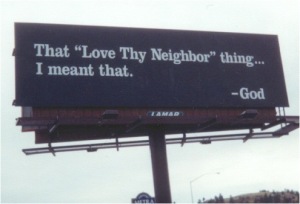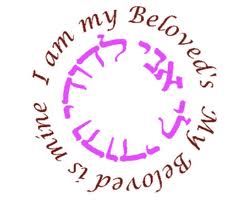
by Robin Bartlett
Y’all,
I’m back following my maternity leave. I have a robust two month old named Isaac to add to my supply of beautiful children, making our little apartment bust at the seams with STUFF. And I’ve been thinking a lot about parenting, because that’s one of the things one does when one is on maternity leave, no?
My new husband is also new to newborns, so watching him parent our baby boy has been one of the great gifts of my life. [Truthfully, watching him lovingly stepparent our daughters has been another of the great gifts of my life.] He loves our son Isaac with the fire that one loves a firstborn child. You know, the fire with which you love your first teacher of how to love? The fire that keeps you up at night with fear that you aren’t good enough? The fire that ensures you have nightmares when you do finally fall asleep–the kind that involve you staving off enemies in some perverse kind of tribalism as you fight to feed your family? He’s got that fire. It’s scary and beautiful.
Speaking of scary and beautiful, I’ve also been thinking a lot about hell on earth. Maybe it’s my husband’s hellish nightmares, or maybe it’s because I keep bringing babies into this broken and beautiful world. I have been thinking a lot about why we parents elect to do this impossible, frightening gig.
We know its our job to destroy hells so that we can help make a world worthy of our kids’ promise. But that job is hard, friends. It’s hard. Since our baby Isaac has been born there have been a few mass shootings in malls and Syrian genocide with chemical weapons and a 24 year old math teacher killed by a 14 year old student in a school in nearby Beverly. I want to just cover his little eyes and ears and hope he never learns about any of this. But the fact is that we still chose to bring this baby here, exposing this beautiful, perfect, innocent pre-verbal baby boy we love so much to the evils of this planet home we live in. I think it’s because you and I are eternally against-all-odds hopeful, and believe that the world should go on in spite of itself. Either that or we’re crazy.
Of course, we Americans have the great luck of being born into one of the safer and most wealthy countries in the world. And some of us privileged folk decide to move to the suburbs to shield ourselves and our children even further, thinking that if we get far enough away from the city, we might be able to keep our children safe. A little sanctuary of beautiful lawns and Home Depots and people who don’t talk about the bad stuff.
I have a confession to make. I live in the city, and I have always had suburban envy. Particularly in the summer when you all have barbeques. I covet the backyards that look so safe and quiet. And the pools! You see, for the past eight years, I have always had a reverse commute–living in the city of Boston and serving UU churches in the beautiful suburbs of Eastern Massachusetts. The three vibrant, active, churches I have served, responding to their mission to love the hell out of this world, spend a lot of time trying to find mission fields outside their own neighborhoods. The churches I have served have done all kinds of beautiful work in New Orleans and Uganda and Haiti. The churches I have served have spent lots of time figuring out how we can feed and house the nearby community of Boston and its inner-city neighborhoods, as if that’s the only place where violence and hunger manifests around here.
I used to live in the Boston neighborhood of Jamaica Plain, and now I live in Roslindale. When I lived in Jamaica Plain, I lived next to a low income housing cooperative, and it was loud in the summer. There was loud music, loud yelling, loud fighting. Everything was loud. One day, a woman was out in the parking lot fighting with a boyfriend on a hot summer night. He got in his car and he hit her with it. She screamed obscenities. Everyone came out of their apartments. I called 911 and an ambulance came to take her to the hospital. She screamed words that would make the most hardened prisoner blush as they strapped her to the gurney and her boyfriend proceeded to lie to the police officers about what he had done.
I remember telling my boss, the Rev. Parisa Parsa, about this whole episode the next day. She pastors a suburban UU church in Milton where I used to be the Director of Religious Education, about 5 miles and a world away from my neighborhood. “I can’t bring my children up in this neighborhood,” I said to her. “What if they had been awake and heard that? I need to move to the suburbs.”
And I remember what she said to me so clearly. “Robin, it is almost refreshing that in your neighborhood that stuff happens out in the open,” she said. “Here in the suburbs, the same things happen and kids can’t talk about it. They are sworn to secrecy…the cultural norm is silence. The domestic violence, the terrifying fighting, the vicious quiet racism that is masked by polite fights about housing and school systems, the substance abuse…it’s all a secret here. Everybody pretends it’s not happening. People feel crazy and alone like they’re the only ones. Be thankful that it’s out in the open where you live. At least you get to talk about it; to address it with your children. Here, the pain and shame is hidden and insidious like poison.”
Hell is all around us; even, I suspect, in the Metrowest suburbs of Massachusetts. Hell is in our separation from one another, our loneliness and isolation, our fear of losing our houses and jobs in the economic downturn, our credit card debt, our panic, our drug addictions, our shame, our secret alcoholism, our secret domestic violence, our SECRETS IN GENERAL, our cancer diagnoses, our mental illnesses, our need to consume, to buy more, to one-up and keep up with the Joneses. Hell is in our depression and our inauthentic relationships with the people we are trying so hard to impress. Hell is in our lack of trust of our neighbors; the way we cover up the bad things. Hell is here, and we live in it.
So, I think our mission as parents is to start living truthfully and loving extravagantly. Our mission is to start admitting to each other that parenting is hard, and that we need one another to do it. Our mission is to stop trying to look good to everyone else, and instead to try to be good to each other. Our mission is to stop creating busy-ness for ourselves and our kids as if being busy will miraculously save our children from everything we fear. Our mission is to start telling the truth about what’s real in our parenting and marriages, and to ask for help from those around us. Telling the truth helps. That’s how we destroy hell; to live up to our children’s promise.
And that’s why we come to church. Not for programs that will add to our busy-ness, or cram more ideas into our kids’ heads for the sake of well-roundedness. Not to make ourselves look good, but to help us be good. We come to church to be connected to one another and to the Holy, and to figure out how to make this earth as it is in heaven, one little truth-telling experience at a time.
Spirit of Life and Love in Whom We are One,
You who love the hell out of us; who gave us this beautiful earth and each other
So that we might learn to be good stewards of that which has worth, and to love abundantly, holding fast to what is good.
We desire to know what it means to fill this world up with more love.
We desire to be the hands and feet of the kingdom of equals—to incarnate this love and justice everywhere we go; from the city to the suburbs to the exburbs to the rural areas to the forgotten places in this empire.
We want to do this because we love this world, and we know how hard it is to live in it sometimes.
We also come in pain—grieving from our own internal hells, some hidden, some so on the surface that we could never keep them secret:
We pray for an end to sickness; for an end to loneliness; for an end to despair; for an end to the pain that comes from lost relationships, severed ties, broken love.
We pray for an end to our addictions—to food, to alcohol, to shopping, to compulsive exercise and gossip and drugs and lying and credit cards and Facebook.
We pray for an end to our anxiety; anxiety that comes from uncertain financial futures, and parenting children long outside the safety of our wombs; and the fear of being found out; and the fear of being authentically who we are in a world that asks us to mask ourselves in who we are not.
We pray for the ability to come out of the shadows, and for the ability to live risky and vulnerably. We know it is never too late.
We pray all of this for love’s sake.
Amen.









